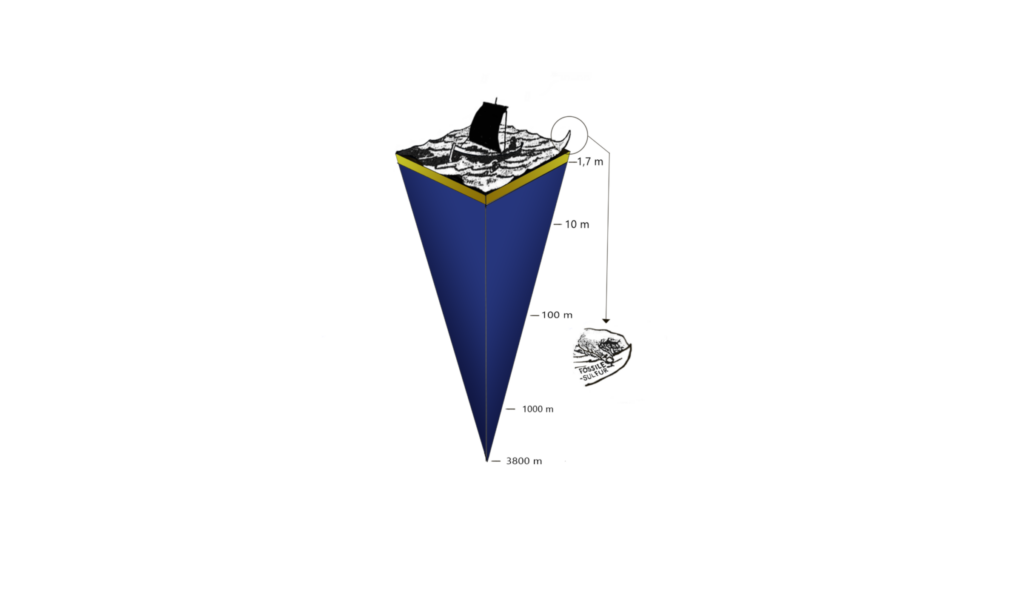Criticism that washwater from marine scrubbers transfer harmful emissions from air to sea is unfounded, shows numerous independent scientific studies, writes Svein Ole Strømmen, the Chief Operating Officer of Clean Marine in an article published in Safety4Sea.
What is it?
In recent months, lobbyists have managed to convince some international ports to ban open loop scrubbers because of fears that the washwater discharge from marine scrubbers are harmful to the environment, but without presenting convincing, valid scientific evidence to back up the ban.
Fake Allegations?
In January this year, Ian Adams of the Clean Shipping Alliance 2020 even labelled such allegations as “fake news”.
As a company that represent technologies scientifically developed and documented, we hope that the international community and shipping industry going forward will base scientific discussions on science instead of undocumented scaremongering. The latter could prove highly detrimental to both people’s health and our planet.
So, Svein Ole Strømmen, chief operating officer of Clean Marine, cited scientific data proving safety of scrubbers and argued that these systems are useful for the green future of shipping.
Harmless washwater
Historically, human activity, since the beginning of the industrial revolution, has released large amounts of fossilized sulphur causing acid rain over land, lakes and rivers. Acid rain has, however, not caused any problems to the marine environment. Seawater is naturally alkaline, which gives the seawater a substantial capacity to absorb and neutralize SO2.
This is one of the reasons why numerous independent scientific studies in recent years have all concluded that washwater from scrubbers do not harm the marine environment, including:
- Japan’s Ministry of Land, Infrastructure, Transport and Tourism’s study published in 2019 concluded that “the discharge water with chemical substances such as SOx, PAHs and heavy metals can NOT cause unacceptable effects either on the marine organisms or on the seawater quality around Japan”.
- A three-year study led by cruise giant Carnival, and subsequently evaluated by classification society DNV GL, confirmed in 2019 that washwater samples were consistently well within the allowable IMO criteria and regulatory limits.
- In 2019, a study by CE Delft, a research organisation in the Netherlands specialising in environmental issues, indicating that accumulated concentrations of scrubbers’ wash water components are at very low levels and well below applicable regulatory limits.
- An Assessment of possible impacts of scrubber water discharges on the marine environment conducted by the Danish Ministry of the Environment, concluded in 2012 that “…compared to current environmental acceptability levels the releases from scrubbers can be expected to be considerably below the levels of ecological concern”.
- As far back as 1989 and 1990, the University of Bergen in Norway conducted a benthic survey before and after the deployment of a seawater scrubber at Norway‘s Mongstad refinery, reference is made to ”A benthic survey before and after the deployment of a seawater scrubber outlet”, Botnen et.al. The survey concluded that “No evidence of harmful impact on the marine bottom fauna at the seawater scrubber outlet was found”.
Revoking Scrubbers Ban?
Upon being presented with the results and conclusions from the recent scientific studies, several ports have confirmed that they will revoke the ban on open loop scrubbers.
Sulphur not a problem
However, despite the overwhelming scientific evidence, some ports are still concerned about the sulphur that the scrubber washwater release into the ocean.
Their concerns are unfounded. Firstly, all the scientific studies mentioned above prove that the sulphur emission levels from scrubber washwater do not cause any harm to the marine environment. Secondly, people need to understand that sulphur in the form of sulphate is a natural constituent of seawater and therefore not harmful to sea.
A study published by Nyman and Tokerud in 1991, illustrates the latter point by explaining: “If the sulphur in the sea were spread out as an even layer, the total ocean area of the world would be covered by a 5-foot thick (1,5 metre) layer of elementary sulphur. If all the sulphur in all the known oil and coal reserves were added to this layer, the thickness would only increase by the thickness of a sheet of paper” (see illustration).

Scrubbers Enjoyed A Clout
It is also worth noting that utilising seawater scrubbing to remove sulphur-dioxide is not new. For decades, seawater scrubbing has been used to remove Sulphur-dioxide from flue gas, power stations and other industries such refineries and aluminium smelters around the globe. Please also remember that all these land-based installations have been through a detailed permitting process taking local conditions into consideration. This includes thorough evaluation of influence to the local marine environment by the discharged washwater from pH, sulphates, trace metals and PAH.
Today, seawater scrubbers are approved and in operation in numerous countries around the globe, including the UK, Spain, Norway, UAE, China, India, Taiwan, Indonesia. These local discharges does not cause negative impact on the local marine environment, but are all accepted by the local environmental agencies, who base their decisions on science and long-term surveys that prove that this is environmentally safe.
Sustainable stepping stone
Discharges from marine installations onboard vessels will constitute far less local stress on the marine environment because of the shear fact that the discharge is indeed moving with the vessel. There is thus nothing that indicates that a relative moderate introduction of seawater scrubbers in the marine industry will represent any significant added stress to the marine environment – locally or globally.
Scrubbers Not A Cheat Device
Finally, it is worth pointing out that scrubbers are not a “cheat option” to allow shipowners to meet the IMO 2020 regulatory requirements. Scrubbers are an important stepping stone towards transforming the shipping industry into becoming more sustainable from an environmental perspective, while also enabling shipowners to satisfy the IMO 2020 regulations.
The shipping industry needs scrubbers – and so does the environment.
Did you subscribe to our daily newsletter?
It’s Free! Click here to Subscribe!
Source: Safety4Sea



















